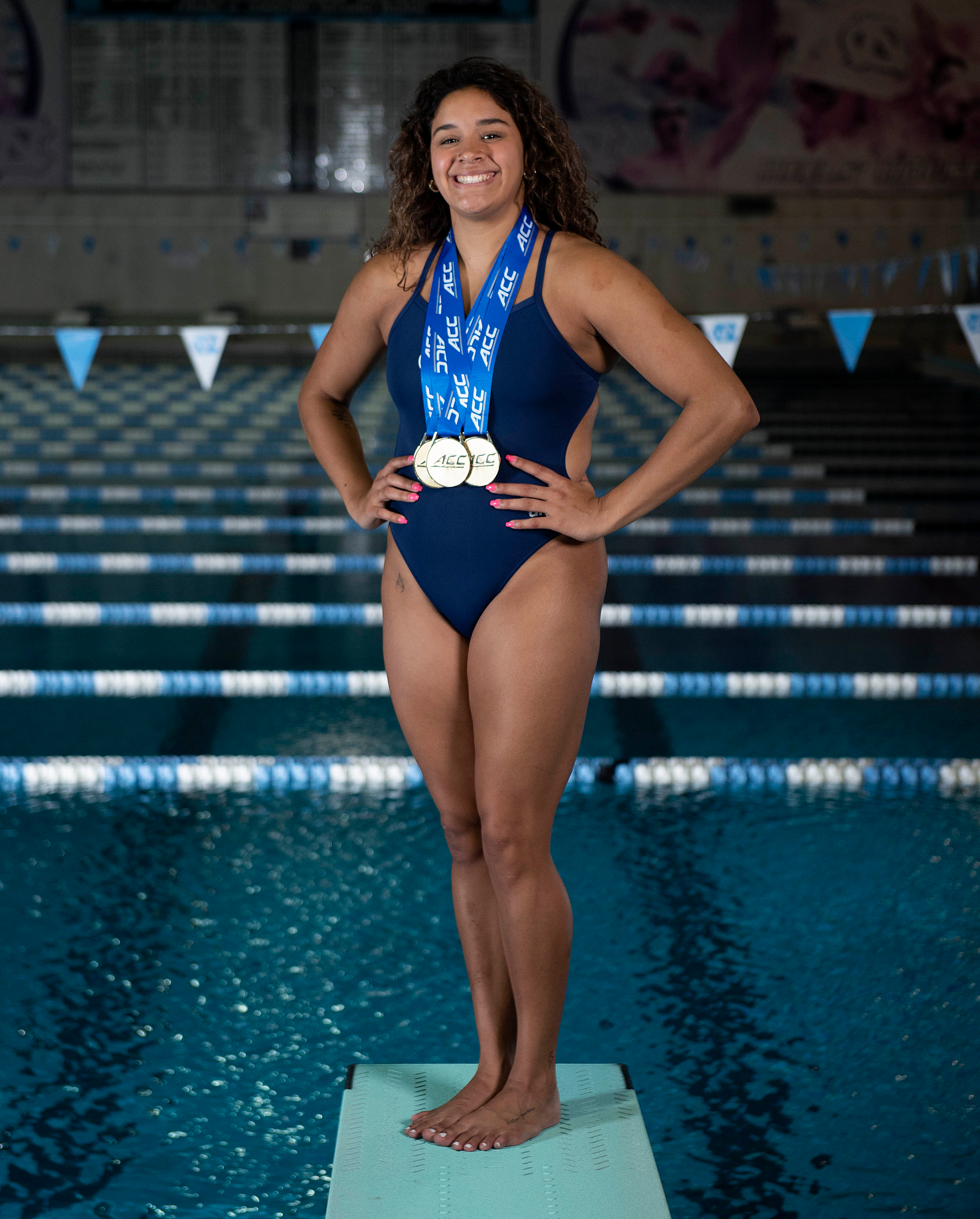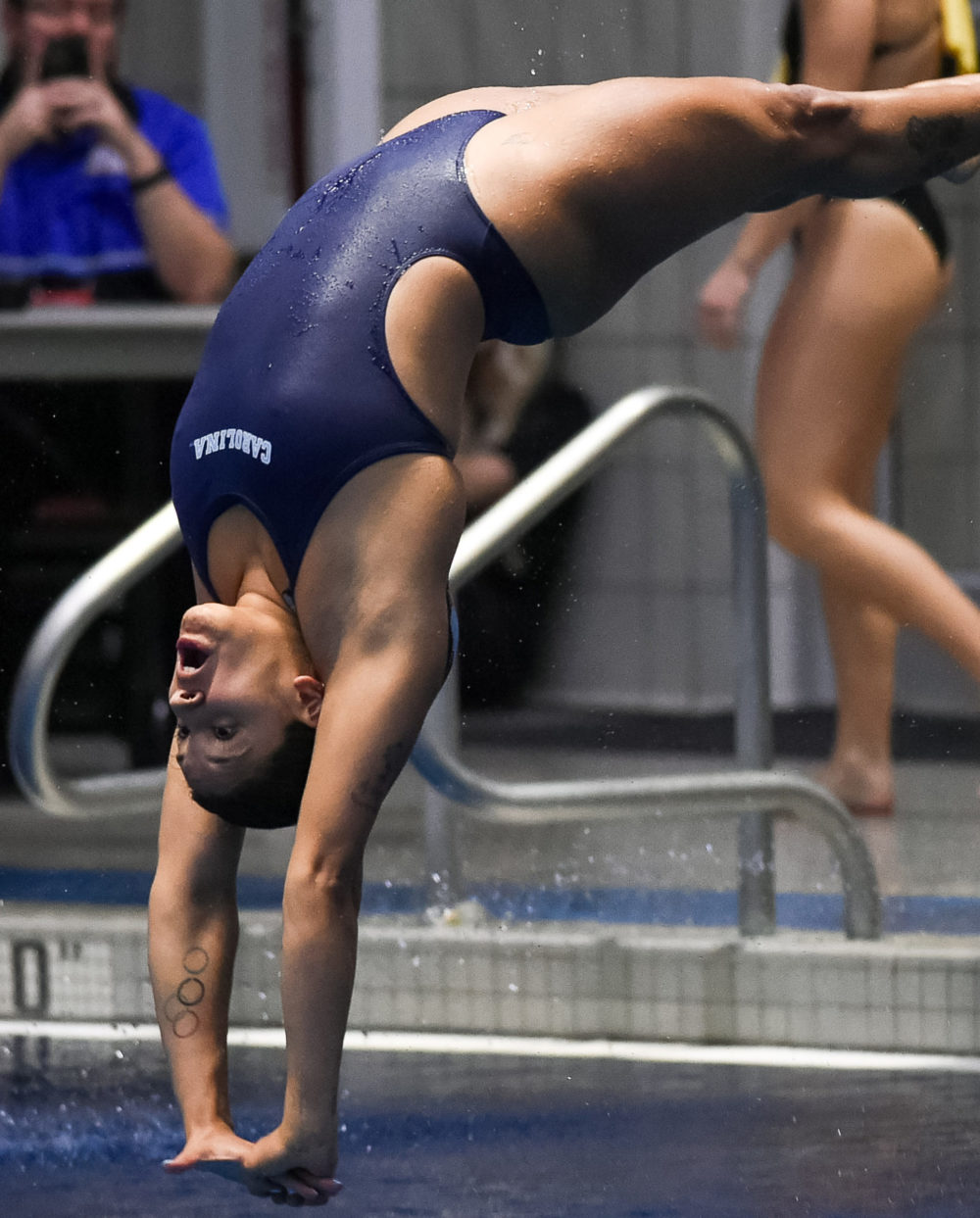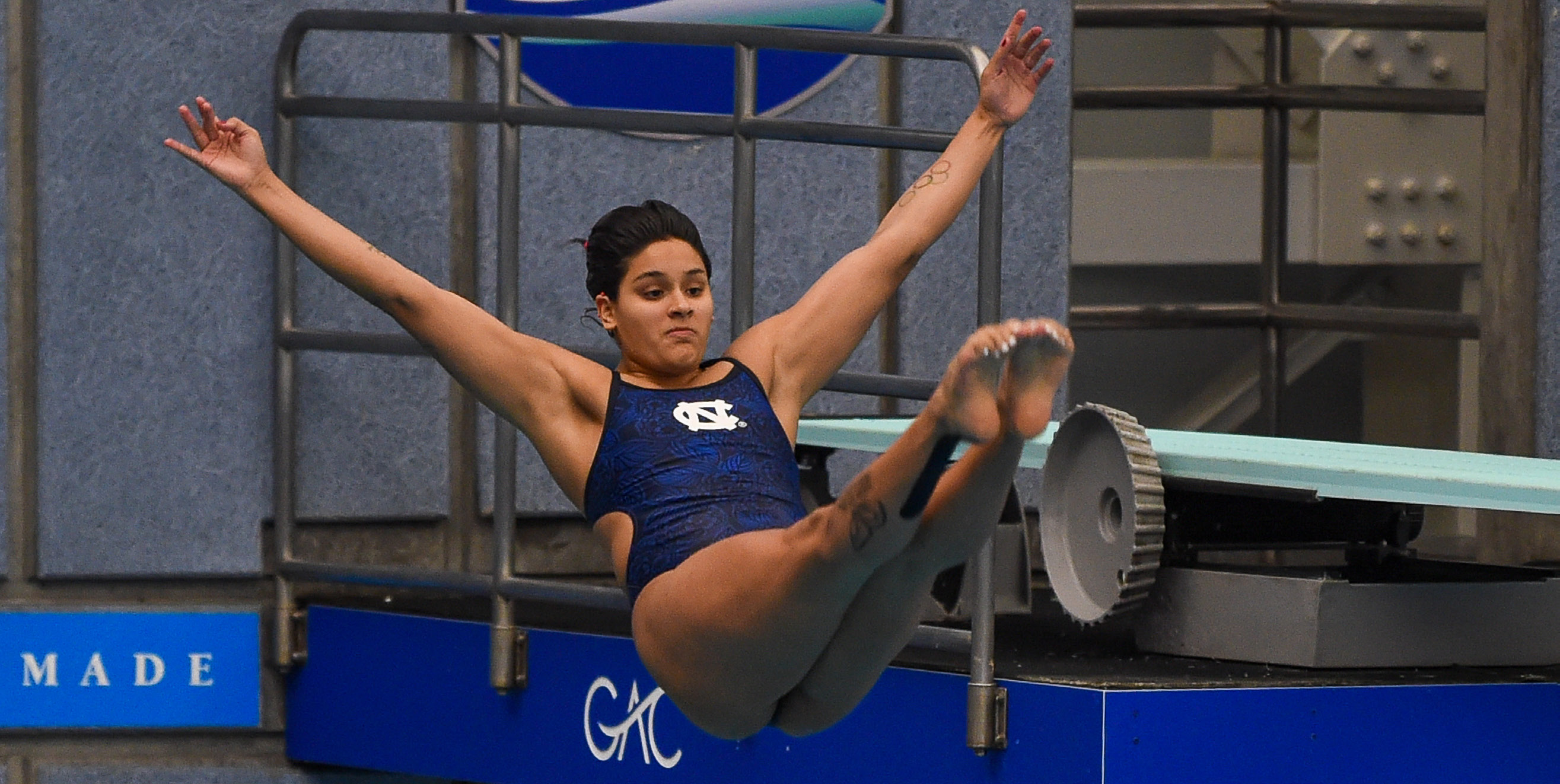Born & Bred: The Long Way Back
Making her first Olympics presented Aranza Vazquez with a very difficult challenge: doing it again.
By Adam Lucas, April 30, 2024

Carolina’s best individual medal hope at the Paris 2024 Olympics was discovered at a hair salon.
Aranza Vazquez was just a four-year-old in La Paz, Mexico, when she was spotted by her future coach. Vazquez’s aunt had a hair salon where Aranza would sometimes pass the afternoons with her mother. On one of those days, she was spotted by diving coach Yuniesky Hernandez.
Hernandez asked Aranza’s mother, Monica Montano, if he could put the girl through a couple of drills. On the street outside the hair salon, his tests confirmed what he’d already suspected:
“She could be a great diver,” Hernandez told Monica. “She has all the physical skills.”
Hernandez encouraged Aranza’s parents to bring her to the pool to work with him. For six months, they ignored him. Finally, they. agreed to bring her to a swimming class.
“As soon as it finished,” says Aranza’s father, Juan Carlo, “she asked to go to the diving pool.”
And she has very rarely left it since that day. Vazquez has gone on to become one of the most decorated individual athletes in the history of Carolina athletics, winning back-to-back NCAA championships in both the 1-meter and 3-meter diving events in 2023 and 2024. When she competed for Mexico in the Tokyo Olympics in 2021, she became the first female Olympic diver in Carolina history.
Now she’s preparing to do it all over again. Vazquez will again dive for Mexico at the 2024 Paris Olympics.
Getting to the Olympics the first time? That was just that talented girl on the street in La Paz doing what she always loved to do.
But getting back? That was a more complicated journey.
![]()
Two years after Aranza first splashed into that diving pool, she made an announcement to her parents:
“I will live in the United States one day.”
But how to do it? La Paz is just a couple of hours from the well-known beach destination of Cabo San Lucas, but about a 15-hour drive from the American border. Juan Carlo and Monica were honest with their daughter—and their son, Rodolfo, who eventually followed in Aranza’s path and is now a freshman diver at Carolina—the best way to get to America was by excelling in academics and athletics. That combination—both parts, not just one—could potentially unlock some scholarship offers in the United States.
“We have always pushed our kids in two ways,” Juan Carlo says. “Studies plus sports. It is not sports plus studies. The studies open doors and make better opportunities in life and open the minds.”
And you never know exactly when that opportunity might come. Aranza’s club coach, Yoandi Nunes, was acquainted with Cuban export Yaidel Gamboa, a ten-time national champion in Cuba who had gone on to a decorated coaching career. Nunes sent Gamboa some videos.
He mentioned she was interested in coming to the United States,” Gamboa says. “I knew right away she had the talent to succeed at the NCAA level. I was impressed by her power and her beautiful lines. Also, I later realized what a great competitor she is, so she was the perfect package.”
Fortuitously, Gamboa had just moved from the University of Missouri to Carolina with head swimming coach Mark Gangloff. He had already been in contact with Aranza during his time at Missouri.
Now he had an even better location to offer.
“He had reached out to me in 2018 and asked if I wanted to come on a recruiting trip,” Aranza says. “When he moved to Carolina, he told me I should come to Chapel Hill and see the team. That’s what I did, and I loved it—I loved the team and the school. And that’s why I’m here.”
Her freshman year was eventful. She became a Tar Heel after the fall 2020 semester, just in time to finish runner-up at the 2021 1-meter and 3-meter NCAA Championships and earn ACC Diver of the Year honors.
The University was still navigating COVID, but she thrived in her newhome. Just as her parents had always insisted, she also excelled in the classroom, earning a spot on the All-ACC Academic team.
With the 2020 Tokyo Olympics pushed back to 2021, she secured a spot on the Mexican national team and was wide-eyed around the other Olympians.
“It was a dream come true,” she says. “I couldn’t believe I was diving with Olympians and talking to them.”
At one point, she was having a conversation with a group of Canadian divers on the pool deck.
“I can’t believe I’m talking to you,” she told them.
Laughing, they replied, “Why?”
“I saw you on TV!” she said. “You’re an Olympian!”
It was the pinnacle of her sport. And she was there, too, diving alongside those same heroes she had watched on television in 2016. She finished sixth overall—sixth in the entire world—in the three-meter springboard.
But people can be cruel even to Olympians. Even as she stood on the deck in Tokyo, Aranza knew that. She’d had first hand experience. A few months prior to the Olympics, she finished fourth at the World Cup, which helped earn the Olympics spot for Mexico that she eventually took.
A judge approached her immediately after the meet. “You did amazing,” he said. “Can I give you some advice?”
Of course he could. She was the ultimate competitor, eager to soak in any possible detail that might result in a precious extra tenth of a point. She was the only female Mexican diver who had made it to the finals. It was, to that point, one of the greatest accomplishments of her life. She was not yet 20 years old.
“If you would lose a little weight,” he told her, “you would get more points.”
It was not the first time she had ever heard that sentiment.
“There was a point it affected me,” she says. “When you’re a teenager, you start being conscious of your body and there will be coaches who tell you that you are fat. They want you to look better and be thinner and look better for the platform. My parents would see me cry. My friends would tell me it had nothing to do with how I look, that I could push through it and get better. The support of my family and friends was so important. Even these days, there are times I have to remind myself that I got where I am with this body.”
So she acknowledged the “advice” but didn’t take it seriously.
“My fourth place was one of Mexico’s best results in the World Cup in many years,” she says. “And a few months after that I qualified for the Olympics and got sixth. I didn’t lose weight. I didn’t do anything different.”
She still occasionally sees that same judge. She smiles and nods. He probably thinks he had something to do with her success. She knows differently. And what does she think, when she passes him at the pool?
“I’m an NCAA champion in America,” she thinks. “I don’t know if you’re aware of that. And I still look the exact same way I did three years ago.”
![]()

There was a mental test to accompany the physical challenge. Aranza Vazquez had accomplished a lifelong goal of being an Olympian. She had trained for that day and worked for that day and gone to early morning practices and spent hours in the pool and the gym, all for that day.
Without ever giving any thought to one additional question: what happened after that day? Her sophomore year at Carolina was, by her standards, underwhelming. She finished third in the one-meter springboard and won the consolation finals for the three-meter springboard. She didn’t win the ACC in either event.
“No one really talks about post-Olympic depression,” she says.
“No one prepared me for it. I thought everyone expected me to win everything. I felt I had to do great in every single competition and I was putting so much pressure on myself. It felt like everyone was relying on me, and in reality, that was all in my head.”
She found a documentary called “The Weight of Gold” in which a variety of athletes, including Michael Phelps, discuss the mental health challenges of being an Olympian, especially in a sport where the Olympics is the pinnacle. She had set a goal, she had trained, she had reached the goal, and she had celebrated the achievement.
And…then what?
“After you go and do a great job, you come back and then it’s like, ‘What am I supposed to do now?’” she says. “I already went. Why would I keep practicing? And I fell into that.”
She took nearly two months off. She returned to La Paz and saw her friends and former coaches, spent time with family, ate Monica’s signature arroz con pollo. She watched the world championship from afar, thought about the dives she knew how to do and the scores that would have resulted. And then she realized she missed it.
“I wanted to be there,” she said. “I missed competing and practicing. Seeing it from the outside helped me.”
“It was a tough time for her to be so young and have the success she had her freshman year and then have the Olympics the same year,” Gamboa says. “I knew she had to give herself some time to recover mentally and get hungry and motivated again. I helped her understand that everything she had accomplished was going to be part of her legacy. But if she wanted to be successful at any level again, we had to work harder than we did before. She is so competitive, so I knew she would be back sooner than later.”
Just as he predicted, she came back even better. She went into the Tokyo Olympics a relative unknown. She will go to the Paris Olympics as a four-time national champion. She will be happy to be
there, but she will not just be happy to be there. “She is better in the way she approaches every competition,” Gamboa says. “She knows it is always about handling the moment in order to be the best version of herself. She is more mature and stronger in every way than she was in Tokyo.”
Somewhere in the world, there is a girl who will be just as excited to talk to Aranza Vazquez on the pool deck in Paris as Aranza was to talk to the Canadians in Tokyo.
They will be watching in La Paz and Chapel Hill and towns around the world, marveling at the girl who was picked out of a hair salon as a four-year-old and now is one of the very best anywhere. She is proud of her Mexican heritage and comfortable in her own body and she is something else, too:
Absolutely, positively a Tar Heel.
“This is the university of champions,” Gamboa says. “She has always loved being a champion, and I think being surrounded by so many athletes from different sports engaging in the same mission has always motivated her. She loves the history and excellence behind the Tar Heels.”
Her parents are hoping to be in Paris this summer to watch their daughter live her dreams. They visited her this spring to watch her dominate the ACC championships and the entire family attended a Carolina basketball game together, perhaps four of the most improbable Tar Heels out of a crowd of over 20,000. She grabbed one of the t-shirts thrown into the crowd during a timeout. Her mother danced along to the sound of the band. Her parents saw very clearly what she has consistently said for the last four years.
“She tells us all the time,” Juan Carlo says, “that she is so proud to be a Tar Heel.”

